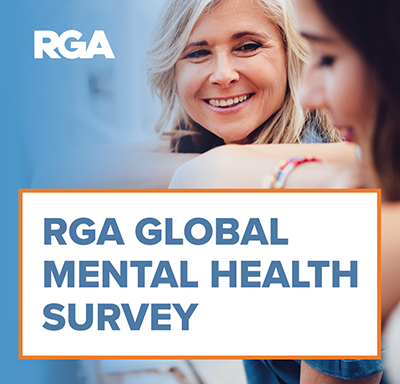Group Mental Health Products
The AXA Mind Health Survey found that employees are more likely to flourish at work if they are offered mental health support there. They are also likely to stay longer with the same employer. In the past, employers offered access to employee assistance programs. These offerings now have been expanded to give employees a range of value-added services, which could include internet-delivered cognitive behavioural therapy (iCBT) and bereavement counselling.
Insurers like Vitality already offer iCBT and counselling within services such as Vitality Health’s Talking Therapies network. Their mental health coverage also includes unlimited in-network Talking Therapies, plus further coverage for out-patient, in-patient, and day-patient treatment.
These group offerings have been refined to deliver practical and personalized support for mental health – from prevention to recovery. The services also have been expanded to include the employee’s immediate family and may include family members as young as 16 years. These group offerings can include counselling sessions, virtual consultations, or – if necessary – face-to-face sessions. Some insurers, rather than restricting the number of sessions offered, provide unlimited coverage.
In Australia, the service Mental Health Assist provides a discreet and confidential way to seek mental health support by connecting with a team of leading mental health professionals at Teladoc Health from the comfort of your own home.
In Canada, Sun Life's Mental Health Coach (MHC), provided by CloudMD, is a practical tool designed to tackle this issue head-on. The tool nudges clients who are at risk of developing a mental health issue and recommends a self-assessment. A coach then guides them to the right resources and support before their symptoms worsen.
In South Africa, RGA is running a pilot of a CBT app called Vimbo in conjunction with an insurer’s staff group scheme.
Group offerings may also give employees access to mental health apps. Some recent launches include
Teladoc’s mystrength, which is designed for people over 18 who need structured mental health programs, and Headspace, which recently expanded into the U.K. market.
Sun Life acquired Dialogue in July of this year. Dialogue has a robust suite of virtual healthcare and wellbeing services. Their Mental Health+ service gives access to a multidisciplinary team of psychologists, psychotherapists, and health specialists. The service includes self-led internet-based cognitive behavioural therapy (iCBT) and practitioner-led therapy. Sun Life also offers a range of mental health solutions, which include the Mental Health Strategy Toolkit for employers.
The Travelers Companies has announced the launch of “Wysa for Return to Work,” an app designed to promote the mental health of injured employees.
Unum’s Help@hand app features unlimited mental health support, with the offering now available to all employees, not just insured employees. Services now include support for mild-to-moderate conditions, along with unlimited bereavement counselling.
In the Americas, Blue Cross is an example of an insurer that has significantly increased its coverage of mental health. Blue Cross partnerships now include Headway; the Alma network, which is made up of more than 13,000 mental health clinicians; Talkiatry; Thriveworks; Refresh Mental Health; and Valera Health, which offer both in-person and virtual treatment with diverse clinicians serving most ages.
Insurers continue to form partnerships with insurtechs, mental health platforms, and apps to refine their coverage of mental health needs. In Asia, the online mental health platform MindWoRx is launching in the Philippines. This platform helps companies assist their employees in overcoming anxiety and depression and handling the day-to-day stress and pressures at work and at home. MindWoRx is an innovative and self-guided behaviour therapy platform with over 150,000 users globally that uses the Cognitive Behaviour Therapy (CBT) approach. The platform includes a web-based Anxiety and Depression Assessment Test, online Mental Recovery & Resiliency Courses, and a Community Support Forum monitored by licensed therapists.
Another solution in Asia is the digital mental health company ThoughtFull, which is partnering with the FWD Group to launch the Mind Strength Support program, a first-in-the-market platform to provide individuals with a convenient and confidential way to access digital solutions to strengthen their mental health. ThoughtFullChat leverages AI-powered technology for seamless and personalized access to mental healthcare solutions. Users can opt to find their best-fit mental health professional for video therapy, daily one-on-one, bite-sized coaching via text and audio messaging, and/or engage with dynamic science-backed content and emotional health trackers. The wide range of tools is available for individuals to utilize at their own pace.
Insurers also have linked up with virtual mental health service providers. AbleTo, Inc offers structured CBT programs tailored to participants’ unique needs for personalized treatment. They also provide Digital CBT, which offers one-on-one motivational coaching access. An example is the Virtual Blue benefits plan, an integrated mental healthcare plan that starts from age 4 and includes access to psychologists, psychiatrists, and licensed clinical social workers (LCSW).
Recent product launches
Cigna Healthcare plan for Seniors is a new, customized health benefits plan aimed at supporting the health and vitality of mobile people age 60 and older. The mental health support offering includes up to 20 face-to-face counselling sessions and access to mindfulness coaches and CBT psychologists.
In the U.K., the recently launched Bupa Family+ offers extensive mental health services, ongoing support for longer-term conditions, and family mental healthcare. It includes the Family Mental Healthline, staffed by trained advisers and mental health nurses. Also in the U.K., a new standalone protection policy, Childshield, provides mental health and wellbeing support 24/7, all year round.
Voya Financial has expanded its critical illness and accident insurance to include coverage for mental health. It will include a benefit for psychological or psychiatric care prescribed by a doctor provided in an eligible facility on an inpatient or outpatient basis after a covered accident.
MetLife, in its collaboration with Empathy, an end-of-life platform, is helping families navigate the experiences associated with loss. MetLife’s Beneficiary Claims Concierge Services now offers employees and their beneficiaries enrolled in life insurance access to Empathy’s bereavement care platform. These benefits, which were made available to all employee policyholders’ beneficiaries, are part of AT&T’s focus on boosting employee wellbeing.
What’s next?
Insurers can help educate children and youth to improve their health literacy and thereby help reduce the fear of social stigma attached to mental illness. They can continue to expand their group offerings to include all members of an employee’s family and consider increasing the number of consultations covered. They also can continue to refine and develop their value-added service offerings in relation to mental health.
In addition, insurers can continue to invest in partnerships with insurtechs and digital mental health platforms so that the range of solutions they offer can include options such as talking therapies and counselling (face-to-face, teletherapy, or hybrid), medications, psychiatry, and inpatient care as needed. They can redesign plans to encompass a wider range of mental health services across key phases of support: prevention, detection, treatment and management, or recovery. Services could include digital tools for early detection of those at risk and to sustain wellbeing. Outpatient treatment options could be expanded to offer counselling (face-to-face, teletherapy, or hybrid).
And, importantly, investment in providing training for professional personnel would be useful to help overcome the severe shortage of qualified mental health specialists across the world.
To learn more about mental health insurance solutions from RGA product development experts, contact us.





